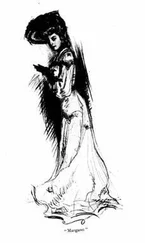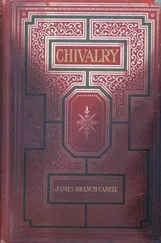James Cabell - The Certain Hour. Dizain des Poëtes
Здесь есть возможность читать онлайн «James Cabell - The Certain Hour. Dizain des Poëtes» весь текст электронной книги совершенно бесплатно (целиком полную версию без сокращений). В некоторых случаях можно слушать аудио, скачать через торрент в формате fb2 и присутствует краткое содержание. Жанр: Современная проза, на английском языке. Описание произведения, (предисловие) а так же отзывы посетителей доступны на портале библиотеки ЛибКат.
- Название:The Certain Hour. Dizain des Poëtes
- Автор:
- Жанр:
- Год:неизвестен
- ISBN:нет данных
- Рейтинг книги:4 / 5. Голосов: 1
-
Избранное:Добавить в избранное
- Отзывы:
-
Ваша оценка:
- 80
- 1
- 2
- 3
- 4
- 5
The Certain Hour. Dizain des Poëtes: краткое содержание, описание и аннотация
Предлагаем к чтению аннотацию, описание, краткое содержание или предисловие (зависит от того, что написал сам автор книги «The Certain Hour. Dizain des Poëtes»). Если вы не нашли необходимую информацию о книге — напишите в комментариях, мы постараемся отыскать её.
The Certain Hour. Dizain des Poëtes — читать онлайн бесплатно полную книгу (весь текст) целиком
Ниже представлен текст книги, разбитый по страницам. Система сохранения места последней прочитанной страницы, позволяет с удобством читать онлайн бесплатно книгу «The Certain Hour. Dizain des Poëtes», без необходимости каждый раз заново искать на чём Вы остановились. Поставьте закладку, и сможете в любой момент перейти на страницу, на которой закончили чтение.
Интервал:
Закладка:
"You are unfair," she cried. "Oh, you are cruel, you juggle words, make knives of them… You" and she spoke as with difficulty-"you have no right to know just how I loved my boy! You should be either man or woman!"
He said pensively: "Yes, I am cruel. But you had mirth and beauty once, and I had only love and a vocabulary. Who then more flagrantly abused the gifts God gave? And why should I not be cruel to you, who made a master-poet of me for your recreation? Lord, what a deal of ruined life it takes to make a little art! Yes, yes, I know. Under old oaks lovers will mouth my verses, and the acorns are not yet shaped from which those oaks will spring. My adoration and your perfidy, all that I have suffered, all that I have failed in even, has gone toward the building of an enduring monument. All these will be immortal, because youth is immortal, and youth delights in demanding explanations of infinity. And only to this end I have suffered and have catalogued the ravings of a perverse disease which has robbed my life of all the normal privileges of life as flame shrivels hair from the arm-that young fools such as I was once might be pleased to murder my rhetoric, and scribblers parody me in their fictions, and schoolboys guess at the date of my death!" This he said with more than ordinary animation; and then he shook his head. "There is a leaven," he said-"there is a leaven even in your smuggest and most inconsiderable tradesman."
She answered, with a wistful smile: "I, too, regret my poet. And just now you are more like him-"
"Faith, but he was really a poet-or, at least, at times-?"
"Not marble, nor the gilded monuments of princes shall outlive this powerful rhyme-'"
"Dear, dear!" he said, in petulant vexation; "how horribly emotion botches verse. That clash of sibilants is both harsh and ungrammatical. Shall should be changed to will ." And at that the woman sighed, because, in common with all persons who never essayed creative verbal composition, she was quite certain perdurable writing must spring from a surcharged heart, rather than from a rearrangement of phrases. And so,
"Very unfeignedly I regret my poet," she said, "my poet, who was unhappy and unreasonable, because I was not always wise or kind, or even just. And I did not know until to-day how much I loved my poet… Yes, I know now I loved him. I must go now. I would I had not come."
Then, standing face to face, he cried, "Eh, madam, and what if I also have lied to you-in part? Our work is done; what more is there to say?"
"Nothing," she answered-"nothing. Not even for you, who are a master-smith of words to-day and nothing more."
"I?" he replied. "Do you so little emulate a higher example that even for a moment you consider me?"
She did not answer.
When she had gone, the playmaker sat for a long while in meditation; and then smilingly he took up his pen. He was bound for "an uninhabited island" where all disasters ended in a happy climax.
"So, so!" he was declaiming, later on: " We, too, are kin To dreams and visions; and our little life Is gilded by such faint and cloud-wrapped suns -Only, that needs a homelier touch. Rather, let us say, We are such stuff As dreams are made on -Oh, good, good!-Now to pad out the line… In any event, the Bermudas are a seasonable topic. Now here, instead of thickly-templed India , suppose we write the still-vexed Bermoothes -Good, good! It fits in well enough…"
And so in clerkly fashion he sat about the accomplishment of his stint of labor in time for dinner. A competent workman is not disastrously upset by interruption; and, indeed, he found the notion of surprising Judith with an unlooked-for trinket or so to be at first a very efficacious spur to composition.
And presently the strong joy of creating kindled in him, and phrase flowed abreast with thought, and the playmaker wrote fluently and surely to an accompaniment of contented ejaculations. He regretted nothing, he would not now have laid aside his pen to take up a scepter. For surely-he would have said-to live untroubled, and weave beautiful and winsome dreams is the most desirable of human fates. But he did not consciously think of this, because he was midcourse in the evoking of a mimic tempest which, having purged its victims of unkindliness and error, aimed (in the end) only to sink into an amiable calm.
CONCERNING CORINNA
"Dr. Herrick told me that, in common with all the Enlightened or Illuminated Brothers, of which prying sect the age breeds so many, he trusted the great lines of Nature, not in the whole, but in part, as they believed Nature was in certain senses not true, and a betrayer, and that she was not wholly the benevolent power to endow, as accorded with the prevailing deceived notion of the vulgar. But he wished not to discuss more particularly than thus, as he had drawn up to himself a certain frontier of reticence; and so fell to petting a great black pig, of which he made an unseemly companion, and to talking idly."
A Gyges ring they bear about them still,
To be, and not, seen when and where they will;
They tread on clouds, and though they sometimes fall,
They fall like dew, and make no noise at all:
So silently they one to th' other come
As colors steal into the pear or plum;
And air-like, leave no pression to be seen
Where'er they met, or parting place has been.
The matter hinges entirely upon whether or not Robert Herrick was insane. Sir Thomas Browne always preferred to think that he was; whereas Philip Borsdale perversely considered the answer to be optional. Perversely, Sir Thomas protested, because he said that to believe in Herrick's sanity was not conducive to your own.
This much is certain: the old clergyman, a man of few friends and no intimates, enjoyed in Devon, thanks to his time-hallowed reputation for singularity, a certain immunity. In and about Dean Prior, for instance, it was conceded in 1674 that it was unusual for a divine of the Church of England to make a black pig-and a pig of peculiarly diabolical ugliness, at that-his ordinary associate; but Dean Prior had come long ago to accept the grisly brute as a concomitant of Dr. Herrick's presence almost as inevitable as his shadow. It was no crime to be fond of dumb animals, not even of one so inordinately unprepossessing; and you allowed for eccentricities, in any event, in dealing with a poet.
For Totnes, Buckfastleigh, Dean Prior-all that part of Devon, in fact-complacently basked in the reflected glory of Robert Herrick. People came from a long distance, now that the Parliamentary Wars were over, in order just to see the writer of the Hesperides and the Noble Numbers . And such enthusiasts found in Robert Herrick a hideous dreamy man, who, without ever perpetrating any actual discourtesy, always managed to dismiss them, somehow, with a sense of having been rebuffed.
Sir Thomas Browne, that ardent amateur of the curious, came into Devon, however, without the risk of incurring any such fate, inasmuch as the knight traveled westward simply to discuss with Master Philip Borsdale the recent doings of Cardinal Alioneri. Now, Philip Borsdale, as Sir Thomas knew, had been employed by Herrick in various transactions here irrelevant. In consequence, Sir Thomas Browne was not greatly surprised when, on his arrival at Buckfastleigh, Borsdale's body-servant told him that Master Borsdale had left instructions for Sir Thomas to follow him to Dean Prior. Browne complied, because his business with Borsdale was of importance.
Philip Borsdale was lounging in Dr. Herrick's chair, intent upon a lengthy manuscript, alone and to all appearances quite at home. The state of the room Sir Thomas found extraordinary; but he had graver matters to discuss; and he explained the results of his mission without extraneous comment.
Читать дальшеИнтервал:
Закладка:
Похожие книги на «The Certain Hour. Dizain des Poëtes»
Представляем Вашему вниманию похожие книги на «The Certain Hour. Dizain des Poëtes» списком для выбора. Мы отобрали схожую по названию и смыслу литературу в надежде предоставить читателям больше вариантов отыскать новые, интересные, ещё непрочитанные произведения.
Обсуждение, отзывы о книге «The Certain Hour. Dizain des Poëtes» и просто собственные мнения читателей. Оставьте ваши комментарии, напишите, что Вы думаете о произведении, его смысле или главных героях. Укажите что конкретно понравилось, а что нет, и почему Вы так считаете.



